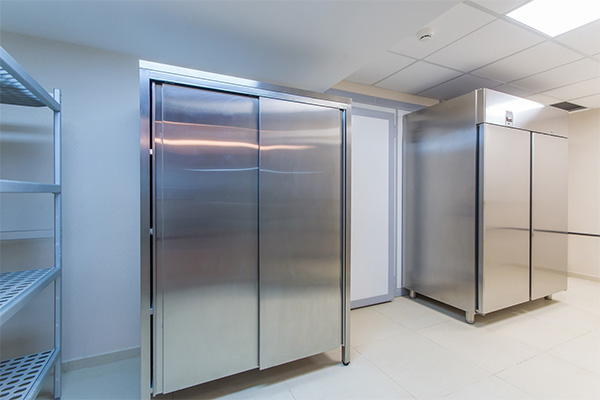
Landlords are expected to provide safe, habitable living conditions and respect their tenants’ rights. However, some landlords might be violating these rights without you even realizing it.
These violations can range from subtle infringements to more severe issues, all of which can have significant impacts on your well-being and security. Knowing your rights is crucial to identifying and addressing these violations.
Toxic Materials in Your Home
One way your landlord could be violating your tenant rights is by exposing you to toxic materials within your living space. Older buildings may contain hazardous materials such as lead paint or asbestos, which can pose major health concerns if disturbed. Even in newer buildings, landlords might fail to manage mold development, which is a prevalent problem that can cause respiratory difficulties and other illnesses.
The Cleveland Clinic states that the dangers of lead paint were clear in the U.S. by the 1920s. Children who ate paint chips or inhaled dust showed symptoms of lead poisoning. These included serious physical and neurological issues. Between 1925 and 1927, more painters died in the U.S. than any other workers.
Early efforts to ban lead paint failed. It wasn’t until 1971 that Congress passed the first federal regulation. The U.S. Consumer Product Safety Commission outlawed lead paint in residential buildings seven years later.
Bob Vila notes that older homes are full of charm and character, but they might also contain asbestos. This mineral, once prized for its strength and fire-resistant qualities, was commonly used in building materials. In the middle of the 1970s, asbestos exposure was associated with major health problems such as lung cancer, mesothelioma, and asbestosis, a lung condition.
As a result, the EPA started restricting the manufacture of asbestos-containing products. Builders then turned to safer materials, leading to a decline in asbestos use. Despite this, homes built before 1980 may still contain asbestos. If you’re wondering, “Can I sue for asbestos exposure?” It’s worth noting that legal options may be available.
According to TorHoerman Law, in the case of a landlord’s negligence, a premises liability lawsuit could be a potential avenue for seeking compensation. Since landlords have a legal obligation to ensure their property’s safety, exposing tenants to known health risks is a violation of that duty.
Similarly, you can approach a lawyer for advice if you suspect your landlord is failing to address other hazards like mold or lead-based paints.
What are the most toxic building materials?
Some of the most toxic building materials include asbestos, lead-based paint, and certain types of mold-resistant drywall. Asbestos can cause severe respiratory diseases, while lead paint poses risks of lead poisoning. Mold-resistant drywall may contain harmful chemicals that can affect indoor air quality and health.
Withholding Security Deposits
Security deposits are a common point of contention between tenants and landlords. Unfortunately, some landlords might wrongfully withhold a portion or all of your deposit without a valid reason. Whether it’s through unjustified deductions or delaying the return of your deposit, these actions constitute a violation of your tenant rights.
FindLaw highlights that the regulations governing the repayment of a tenant’s security deposit vary from state to state. Depending on the state, landlords must refund the security deposit within a specific amount of time.
Landlords normally have between 14 and 45 days after a renter vacates the property to repay the security deposit. Tenants should provide their new address to ensure the deposit and any accrued interest are sent to the right location. For month-to-month leases, the deposit is often required to be returned within 30 days.
It’s crucial to familiarize yourself with the specific laws in your state regarding security deposits. Keep thorough documentation, including photos of your rental’s condition before and after your tenancy, to protect yourself from unfair practices.
What should I do if my landlord doesn’t return the security deposit?
Make a written request for the security deposit refund if the landlord does not return it, and save a record of your correspondence. If the landlord still fails to respond, check local laws for filing a complaint or taking legal action. You may need to consider a small claims court to recover the deposit.
Violating Privacy Through Unauthorized Entry
Statista notes that in 2022, single-family homes and apartments in larger buildings were the top choices for renters across the U.S. About 100 million people lived in rental homes, with nearly 44 million opting for apartments in multifamily buildings. This translated to around 45 million rental households, including 21 million in larger residential buildings.
Your rental unit is your home, and you have a right to privacy. However, some landlords may overstep their boundaries by entering your apartment without proper notice or permission. While landlords do have the right to enter their property for different reasons, they are generally required to provide a notice in advance.
Unauthorized entry can make tenants feel unsafe and violated, and it’s a clear breach of your rights. If your landlord frequently enters your unit without notice, it’s important to address the issue immediately and, if necessary, seek legal advice.
Can a landlord visit without warning?
No, a landlord normally needs to give you proper notice before entering your rented home. In most areas, landlords are required to give a minimum of 24 to 48 hours’ notice before visiting a property for non-emergency purposes. Unauthorized entry can violate tenant rights and compromise your privacy and security.
Understanding your tenant rights is essential for protecting your health, safety, and financial well-being. While landlords have responsibilities, tenants must be vigilant in identifying potential violations. From hazardous living conditions to improper handling of security deposits and privacy breaches, landlords can overstep boundaries in various ways.
Knowledge empowers tenants to recognize these issues, seek appropriate remedies, and create a healthier, more secure living environment. By being informed and assertive, tenants can hold landlords accountable and ensure their rights are upheld.






